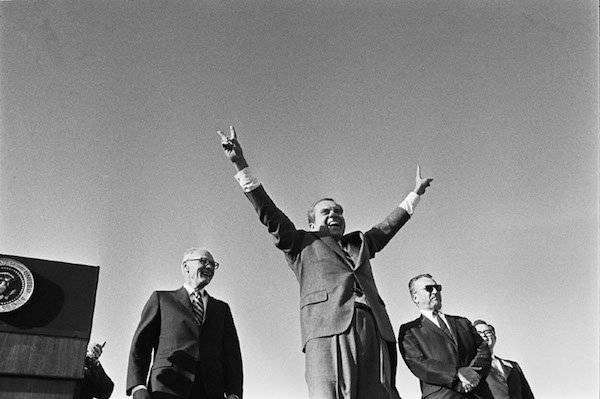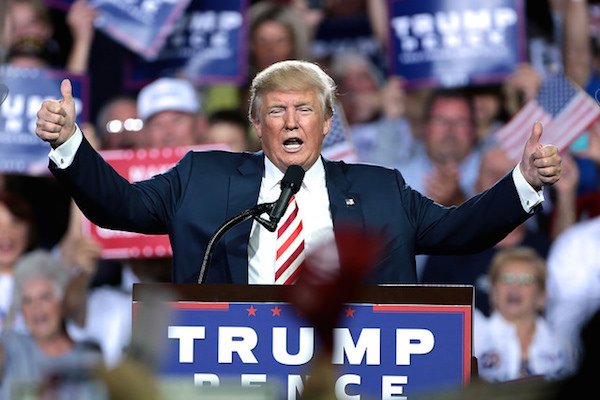It’s going to be a struggle for many years to put this election into appropriate context, outside of clickable content and viral memes and the sort of irreverence being used to escape the reality of Hillary Clinton’s candidacy. It’s easy now to be a Monday morning quarterback, and say, “Bernie Sanders should’ve been given the ball, and taken it to the finish.”
In the face of overwhelming wrongdoing contained in Clinton’s emails from her controversial private server, it is easy now to compare the Democrats’ election fallout with that of the Republicans in 1972.
“I’m not a crook,” President Nixon said to the American people. There were no hash tags back then, but #CrookedNixon might’ve been trending on Twitter if his tapes from the Oval Office were released today.
He was forced to resign, and the Democrats gained 49 seats in the election that followed.
Watergate vs. those ‘damn emails’
Nixon claimed no wrongdoing, and he might never have been caught if it weren’t for the “smoking gun” found in recordings of his conversations with officials ordering an FBI cover-up of the Watergate burglary that cost him his credibility.
At the time, Clinton was a young lawyer working on the Watergate Committee, making this election (and the votes against her) almost serendipitous. Because her emails with aides contain information she knowingly skirted State Department rules, it’s been left to the imagination what information her “@clintonemail” server contained in the wake of Benghazi.
“Hillary Clinton is the embodiment of corruption,” Trump said on the campaign trail. “She’s a corrupt person. What she’s done with her e-mails, what she’s done with so many things.”
The scandal of all political scandals

Anonymous/Associated Press
The mysterious informant “Deep Throat” led to the Washington Post uncovering a rash of information tying the Nixon Administration to the operation, in a strange and paranoid attempt to bug the Democrats’ headquarters and gather intel on its operations.
Watergate, as the scandal came to be known, is actually named after the posh hotel in Washington where the DNC had set up its offices. The setup became the story of a lifetime for journalists searching for an account of political bribery, phonetapping, conspiracy, obstruction of justice and destruction of evidence.
Among the foiled burglars was a member of President Nixon’s security detail, and eventually it was discovered a $25,000 cashier’s check, earmarked for the Nixon campaign, wound up in the bank account of another burglar.

Clinton testified to the House Select Committee on Benghazi (Screen grab)
At first, Nixon refused to hand over the tapes. They did finally surface, however, but the White House couldn’t explain an 18 1/2 -minute gap in one of the subpoenaed tapes — a lot like the thousands of emails that went missing from Hillary’s email server.
Crucial and damning evidence had been tampered with; Nixon would not admit it, but he was guilty of widespread abuse of power.
Nixon’s party was rejected by voters in the elections

Nixon’s victory wave (Wikimedia Commons)
As she was campaigning, Hillary’s trustworthiness was being heavily scrutinized, as Bob Woodward and Carl Bernstein — the duo responsible for breaking the Watergate story — went on cable news apparently concerned over the potential whitewashing of emails the ongoing FBI investigation.
“Now, you’ve got a situation with these transcripts,” Bernstein said, “a little like Richard Nixon and his tapes that he stonewalled and wouldn’t release.”
Ultimately, voters rejected her at the polls and ironically went with the “law and order candidate.”

Flickr/Gage Skidmore
Up and down the ticket this year, the Democrats lost as the Republicans went on to gain a majority in the House and Senate in addition to winning the White House. In 1972, the reverse was true.
The Watergate scandal led to an eerily reflective result: Nixon’s scandalous behavior turned the voters against the Republicans, costing them 3 million votes.
